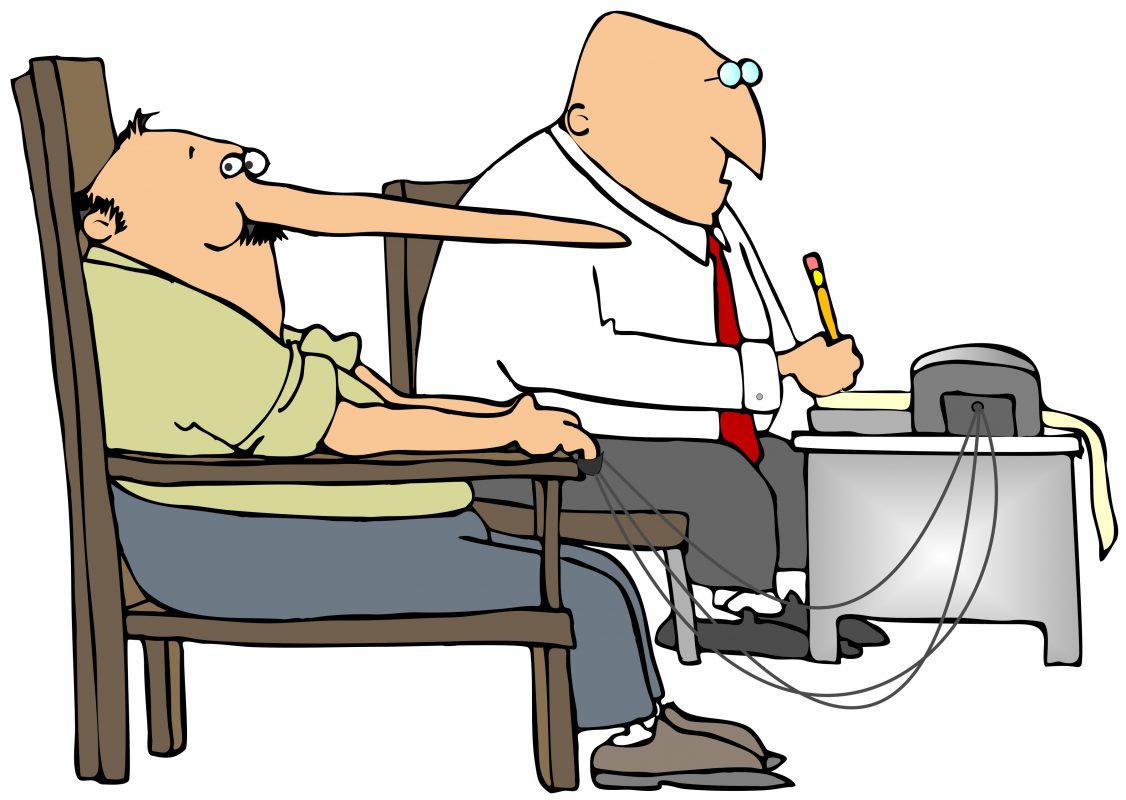Top Stories
Leaders Are Worse Than Average
In every political system, one hopes that the cream rises, that the rulers or governors will be the best and the brightest.

“Power corrupts,” as the saying goes, and a corollary is that, other things being equal, the more power, the more corruption. That’s the sort of common wisdom or deep cliché that would lead one to speculate that political leaders are likely to be morally worse on average than the populations they govern. But perhaps the explanation runs the other way: It’s not only or not even primarily that power corrupts, but that corrupt people seek power, and the most effectively corrupt are likeliest to succeed in their quest.
In every political system, one hopes that the cream rises, that the rulers or governors will be the best and the brightest. Leaving aside the “brightest” for a moment, I’d like to focus on the “best”: not best in terms of the most qualified or experienced, but the morally best, the most decent or admirable, the people with the most integrity. I don’t think that, by and large, that’s who has the political power, or ever did, really. Our being led by bad people is a quite predictable outcome, and few of us trust politicians. This is often described as a problem in a democracy, which, it is held, depends on the people placing its trust in institutions and their leaders. But this “cynicism,” though it is no doubt corrosive, may well be warranted by the empirical facts.

One set of reasons for reaching this disturbing conclusion is explained very clearly in that classic of Western political theory: Machiavelli’s The Prince. The book is written to provide practical political advice, and if it has any purchase in reality, we should expect people who rise to political power to be considerably worse, on average, than people who don’t. Machiavelli says that a prince who is honest, or forgiving, or morally squeamish about eliminating his opponents as quickly as possible by any means necessary, is “preparing his own destruction.”
“Therefore,” he continues, “it is unnecessary for a prince to have all good qualities… but it is very necessary to appear to have them. And I shall dare to say this also, that to have them and always to observe them is injurious, and that to appear to have them is useful; to appear merciful, faithful, humane, religious, upright, and to be so, but with a mind so framed that should you require not to be so, you may be able and know how to change to the opposite. And you have to understand this, that a prince, especially a new one, cannot observe all those things for which men are esteemed, being often forced, in order to maintain the state, to act contrary to fidelity, friendship, humanity, and religion.” [The Prince 18]
Now, it might be replied that a Machiavellian lord (Cesare Borgia, for example) operating on the Italian peninsula among murderous Renaissance condottieri is one thing, a US Senator or whatever it may be who is running for president something else. But everyone understands that to get elected, you’re liable to have to cut some corners, morally speaking, even as you try to maintain an admirable public persona. CNN has been running a series about past presidential elections. “So you want to be the leader of the free world,” asks the trailer for Race for the White House (I don’t, really, as it happens). “How far will you go? Will you turn friends into enemies? Will you break your own rules?” If you were a good person before you ran, this indicates that you’ll be a less-good person afterwards. But it’s quite likely that “you” knew in a general sort of way what was going to be involved before you started, and were perfectly willing to do it. That is, it is likely that a political career would attract moral corner-cutters.
One hope with regard to representative government is that it will often result in good leadership, because the people will typically select the best of their number to lead them: the “best and the brightest,” to again throw out a phrase associated with John F. Kennedy, a man glittery with charisma who allegedly brought with him to the White House the best people America, or at least Harvard, could offer. The best and the brightest wrote Kennedy’s books for him and helped conceal his assignations, of course. But that elections identify the best among us remains a hope or even a sober assertion.
Certainly, the framers of the Constitution claimed that the procedures of tempered democracy that they designed would lead to an ethical meritocracy. As Hamilton wrote in Federalist No. 68: “The process of election affords a moral certainty, that the office of President will never fall to the lot of any man who is not in an eminent degree endowed with the requisite qualifications… It will not be too strong to say, that there will be a constant probability of seeing the station filled by characters pre-eminent for ability and virtue.” (Federalist No. 68)
As the US has struggled through the administrations of moral non-exemplars such as Richard Nixon, Bill Clinton, and Donald Trump, we may question Hamilton’s prescience. There may be a certain percentage of people who seek power because they want to do good, or it may be that in the back of their minds, every political leader believes that he intends to do good. But to use power to do good, you’ll have to do whatever’s necessary to get that power. You’ll likely have to compromise whatever basic moral principles (“tell the truth,” for example) you came in with. Perhaps a particular leader, having gained power, is indeed able to do some good as they understand it. But perhaps they are so thoroughly compromised by then that they won’t be thinking about much except how to hold on to the power that they have achieved.
To see the problem in miniature, one might think about what sort of person wants to be a police officer, a fairly local and constrained agent of power. I’m not denying that in the applicant pool you might get some truly public-spirited people who aspire to keep the city safe. But I think you will also get some people who picture themselves strutting around with a gun and a club and a pair of handcuffs on their hip, and get off on that picture: who enjoy the prospect of intimidating people with a sort of legal impunity given to them by the fact that they represent the law. Perhaps you’ve even run into police officers like that. And wherever there is police power it is significantly abused, which I think is rationally predictable.
To throw out another vignette: One wonders whether someone like Harvey Weinstein sought power primarily in order to commit sexual abuse with impunity. The relation of power to sexual abuse is something we all understand. Even a simple asymmetry of power, between a boss (or president) and an intern, for example, is enough to compromise the sincerity or the possibility of consent. It would not be surprising if sexual abusers, more often than most people, sought positions of power, whether as presidents, priests, CEOs, police officers, athletic coaches, or whatever it may be. I think, frankly, that we all understand this to be the case.
That is, people who gain power are disproportionately people who seek power, and people who seek power are likelier than most to be bad people. In general, the answer to the question of what sort of person wants power over other people is anything but edifying. And if, as many think, there is currently a narcissist in the White House who is willing to lie and cheat to maintain his hold on power, such a result is pretty predictable.

Gaining and holding an office by hook or by crook is likely to introduce a deep bifurcation between the private person and the public image, as Machiavelli remarks and recommends. American politicians manufacture an image of themselves (think of the television advertisements of Michael Bloomberg) and conceal their private “foibles”: gathering civic honors or getting crowned with laurels even as they peddle policy for contributions or do the things that eventually get them #metooed.
That is, political power is a constant temptation to hypocrisy, or just flatly demands it. And when the public persona and the private reality come apart, a human being becomes a moral disaster, a mere deception. That is a fate common among politicians, I believe. It might be a personality disorder best treated in the privacy of a therapist’s office, but political leadership has wide public effects. The sad moral collapse of the political personality (if it doesn’t come pre-collapsed) does not just affect themselves or their family; it affects tax policy and “homeland security.”
It’s not an invariable result, of course, and I think that Jimmy Carter and Barack Obama, for example, are relatively decent people, and at least aren’t personally corrupt on the level of a Warren Harding, a Richard Nixon, a Donald Trump. And I don’t think they were in it for what Kennedy would call “the poontang.” That’s also not to say that they didn’t have to compromise some of their ideals to achieve the presidency; then again, all of us who live to a certain age have probably compromised various of our ideals.
But the ethic of public service is more often expressed than sincerely manifested: As Machiavelli says, you don’t need to have the virtues—in fact that will limit the scope of your action and hence your power—but you need to convey the impression that you do. But we all understand, I think, that the people running for president are as committed to self-service as to public service, and that deciding that you ought to be “the leader of the free world” requires an extreme self-regard. A typical example might be the incessant self-praise of Amy Klobuchar; she should probably, like her opponents, have focused more on opposition research. Maybe she’ll get another crack in 2024.
Public-spirited people can arise and even get elected. But that is liable to be the exception, and the right conclusion from all these reflections is that political power is extremely dangerous, always ripe for abuse, and always attracting prospective abusers. And the history of political power might show some signs of decency or even progress, but it is above all a history of corruption and of conflict, of struggles for power that have nothing to do with helping anyone except the political leaders themselves. Indeed, as Machiavelli recommends, lying your way into a war is a good way to distract your people and maintain their support. If thousands of people die… well, as Machiavelli might say, you can’t make an omelet without breaking a few eggs.






